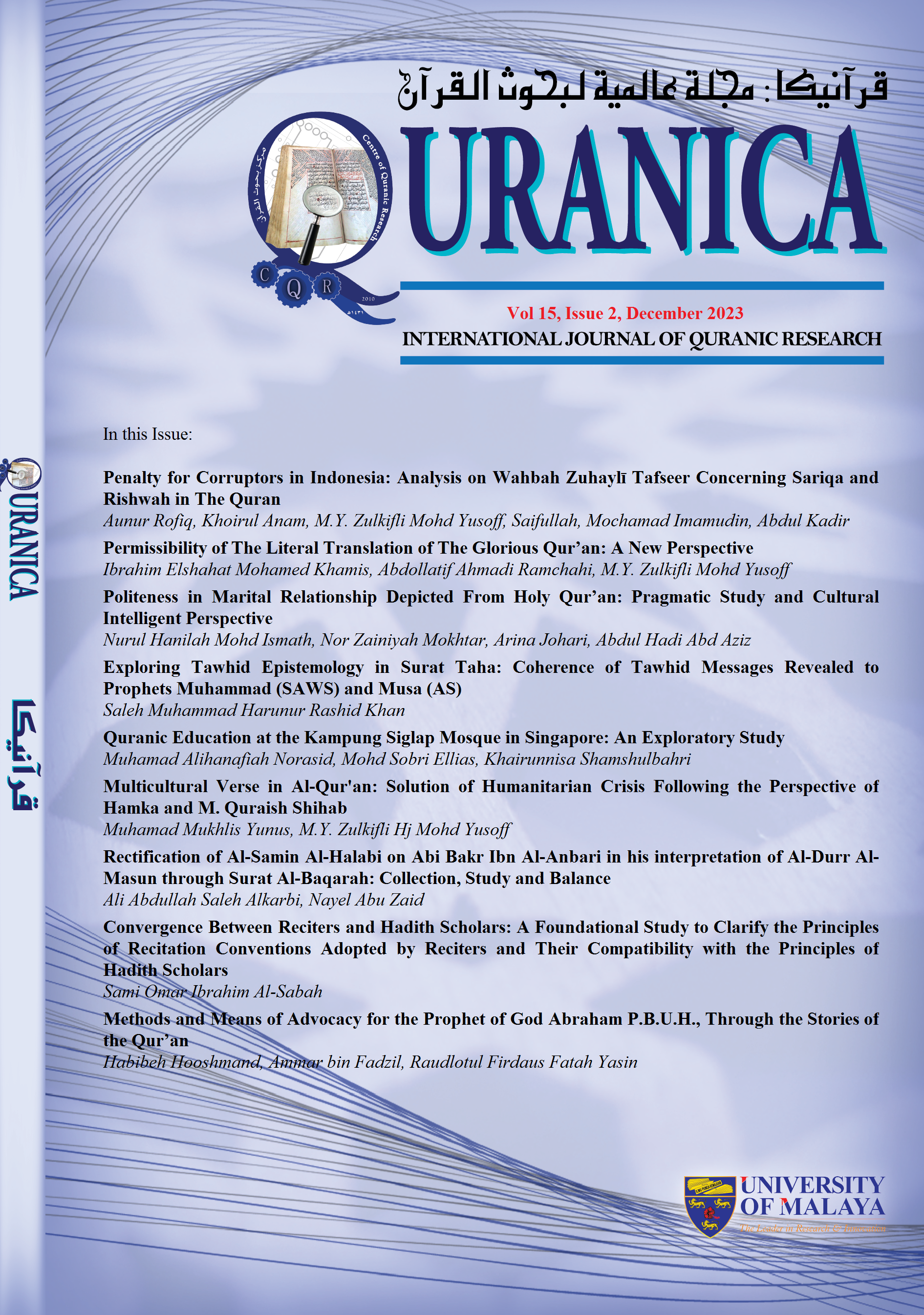Antithetical Vocabulary in the Holy Quran: From Affirmation to Refutation
Main Article Content
Abstract
Antithetical Vocabularies have long been a subject of study among Arabic linguists, representing a significant phenomenon within the Arabic language. The presence or absence of this phenomenon in the Holy Quran has prompted extensive research among linguists. While some have established its existence within the Quranic text, others have sought to refute its presence. Despite extensive research, the definitive confirmation or denial of this linguistic phenomenon remains elusive. While some scholars have identified approximately 150 antithetical pairs within the Quranic text, others vehemently deny the existence of such vocabulary not only in the Quran but also in the Arabic language as a whole. It appears that both groups have fallen into extremes in their interpretation of the concept of "antithetical vocabulary." The first group, without considering the necessary conditions and characteristics, has categorized any word with two opposing meanings as an instance of antithetical vocabulary, while the second group has solely focused on the logical aspect of its definition, deeming the combination of two opposites impossible. An analysis of the vocabulary categorized as "antithetical" in the Quran reveals that many words classified under this label do not meet the necessary criteria for inclusion, significantly reducing the actual number of "antithetical" words in the Quranic text. Nevertheless, definitively determining whether even the remaining number of words can be categorized as "antithetical" remains challenging. The existing disagreement surrounding "antithetical" vocabulary stems from the definition and criteria associated with this concept, not from the very existence of such words in the Arabic language, which is generally acknowledged.
Downloads
Article Details
Disclaimer
QURANICA makes every effort to ensure the accuracy of all its contents. However, opinions, discussions, views and recommendations are expressed in this journal do not necessarily reflect the official policy of QURANICA or views of its editors or publishers. Therefore, QURANICA and its publishers will not be liable for any controversy may be arisen. The journal reserves the right, at its sole discretion, to change its terms and conditions of publications.
Copyright
It is a condition of publication that manuscript submitted to the journal have not been published, accepted for publication, nor simultaneously submitted for publication elsewhere. By submitting a manuscript, the author(s) agrees that copyright for the article is transferred to the publisher, if and when the manuscript is accepted for publication.
